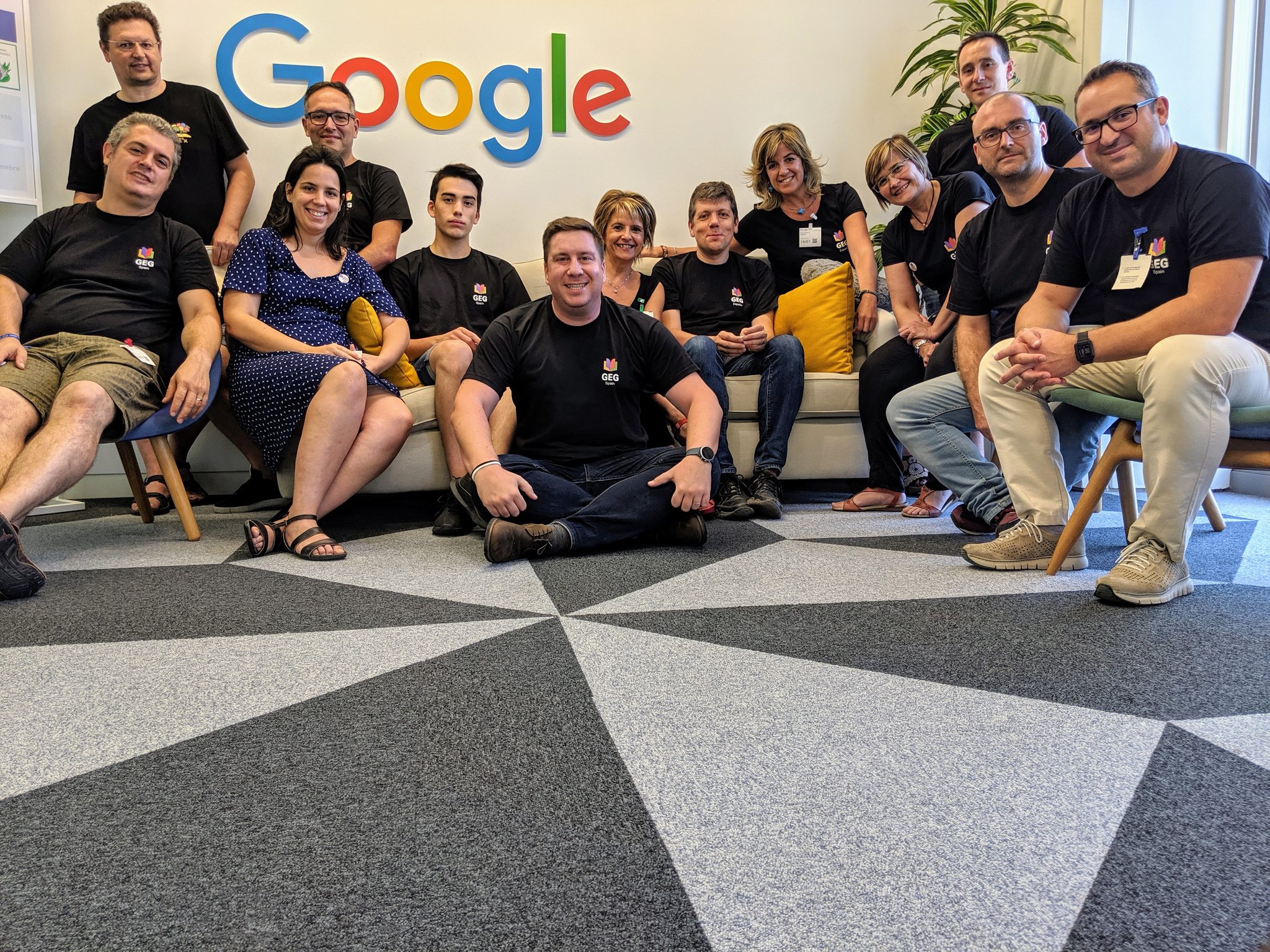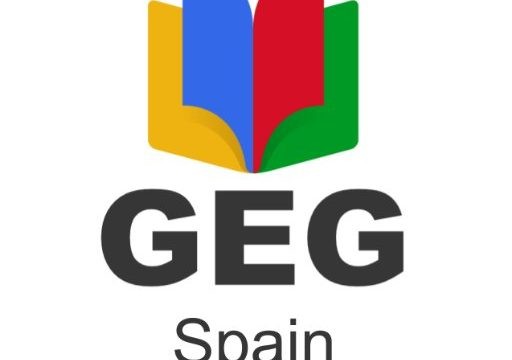 Català (Catalan)
Català (Catalan)  Español (Spanish)
Español (Spanish)
I’m coming back from Madrid on the AVE and I’m taking advantage of these three hours to write a post. I’ve just spent a day and a half with the coordinators of the GEG Spain community. I’ve been one of them for a two years and today I want to talk about the community and its coordinators.
First of all, I want to make it clear, for me it is one of the most important communities I have to improve my teaching practice. Belonging to this community, and especially to the moderation team, makes me evaluate, reflect and improve my work (and passion). Therefore, let me begin by thanking the 13 members of moderation for their work and constant involvement, and the rest of the community for their contributions.
Yesterday afternoon we met the coordinators and we were sharing the projects that each one has been developing, the concerns they have and the most immediate future forecasts. We all meet in person once a year (by videoconference many times more) and it is very interesting to know where and how we all are. Today’s day has been dedicated to work and training. Review and evaluation of the work done and programming of what we will do during the course.
For those who do not know the community, first of all I invite you to join. All you have to do is have a user of a G Suite domain (some autonomous communities offer one to their teachers) and access the the follwing link.
It is a community of teachers, almost two thousand, who virtually share doubts, concerns, successes and errors in the use of technology to improve the learning of our students. We use Google technology (hence the name GEG, Google Educator Group) but not exclusively. The nexus of union of all of us is not the technology we use. The nexus is educational transformation. New methodologies (which are not so new), digitization of classrooms (how? why?), digital competence of students and teachers, evaluation, inclusion, and many more aspects.
Many times, when I talk about the community, I get criticisms for the promotion we do of Google and so on. I am not going to defend or criticise Google’s technology, let everyone use what they think is convenient. But once you have finished your reflection and have made the choice of the technology that you will use in the classroom, it will be very good to be able to be in contact with other teachers who use the same technology. This allows us to share what is important, its application in improving student learning. Precisely, the fact that we share part of the technology we use allows us to make technology the least important thing. And that the center is really the students and how they learn.
Some people find it annoying that Google appears in the middle. I don’t, simply because it doesn’t have any kind of influence in the community. Obviously he’s doing well in our existence, but the team of moderators isn’t easily dazzled. If you never try to influence what we plan as a community, you’ll see a major setback.
The community has a second important paw, apart from the virtual part. These are the face-to-face events. Some of them are from the community, like Valencia, Zaragoza, Madrid, Mérida and soon Tenerife and some more. And others related in some way, such as the Basque Country, Catalonia and Mallorca.
The coordinators organise or support in order to organise a meeting of one or two days where members of the community (and others who are not) can meet and share experiences. Many of them related to technology, but not only. Without going any further, at the Valencia meeting last May I was allowed to talk for a while simply about formative evaluation. Without tools or machines. Just sharing my experience (and doubts) with other teachers.
It goes without saying that all members of the community, including their moderators, participate voluntarily and without ever receiving remuneration. When we have face-to-face meetings, we usually call for experiences to present. Everyone who ends up presenting an experience does so solely for the purpose of sharing and creating community. If you belong to the community and want to be a member, does it make any sense that you want to be paid? If you want retribution, which would be lawful, it will be that you are not just another member of the community. That is why we flee from the great gurus of education. And, above all, we flee from personalisms.
However, as I appreciate each and every one of them, I want to introduce them to you. You will find them on our community website. Sift a little and you will find out exactly what we do and who the coordinators are (all of us are the community!).
Has your center a G Suite domain and do you use the tools? You are very welcome. Does your school use other technologies but do you want to see what other teachers are doing? You are also welcome. Are you from an autonomous community where the Department of Education gives a user of a G Suite domain to each teacher and do you want to see how do you can take advantage of it? Are you interested in the digital competence of your students or your own? You are welcome.
Come on, if you come to share with other teachers, both primary, secondary, as a university, as adult education, etc.. you will be very welcome!
I’m back from a day and a half of intense work. To share ideas and proposals with an exceptional group of people. People at the service of fellow teachers. People, many times anonymous (maybe you have looked at the web and already know us a little or have come to some meeting), who break their back creating and maintaining a bank of resources, creating entries in the community or answering colleagues, preparing events for many people (registration, meals, workshops …) and so many and many other things. And all with a single objective. Improve education. To make our students learn more and better.
I end almost as I began by thanking them for this effort they are making. Thank you for being able to learn with you!


